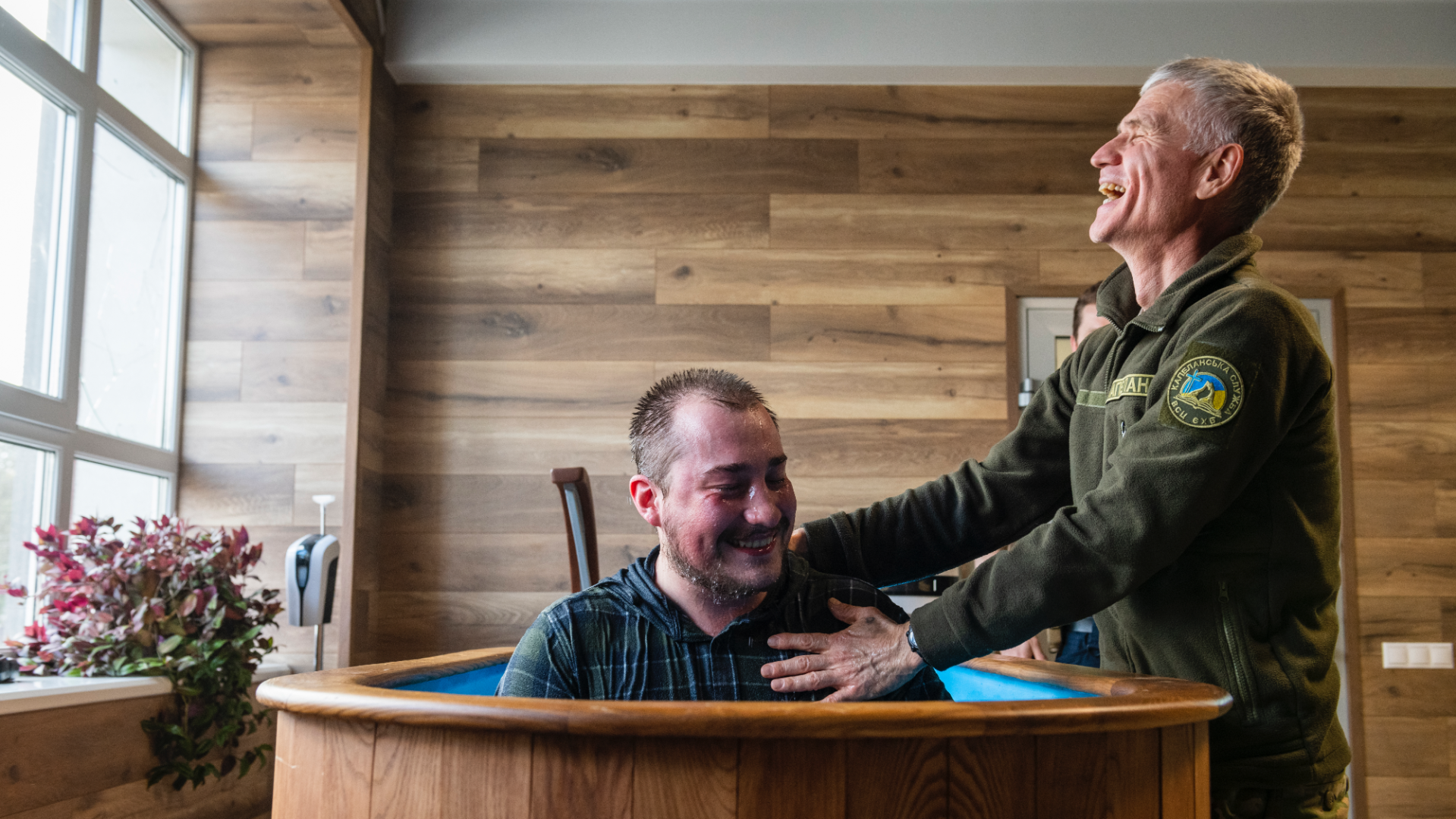Of all the dangers of war, I didn’t think about speeding until I was in a car of evangelical chaplains departing the besieged city of Bakhmut, Ukraine. It makes sense. A slow car is an easier target. We were not a slow car.
But the speed is also a testament to the urgency these chaplains feel. There is so much to do. There aren’t enough hours in a day. And the need grows with the war.
There were no chaplains in the Ukrainian military before. Pastors and priests would sometimes embed in a unit as civilians, but nothing formal. That changed with the invasion. Facing an existential crisis as a nation has made many in Ukraine turn to religion. Fighting in the cities, suburbs, and countryside has turned soldiers’ thoughts to timeless things, prompting many to ask for chaplains. There are people who are hungry and hurting and alone. The chaplains are not going to drive slow.
The Ukrainian Chaplaincy Service was established in March. The first 30 who were trained were Ukrainian Orthodox, Eastern-rite Catholic, and evangelical. Only about 2 percent of the country is evangelical, but many Baptist, Pentecostal, and free church pastors across the country have volunteered to minister as chaplains.
By July, the Ukrainian military had 160 official chaplains. There are still a lot of volunteers too.
Vasily Povorozniuk, pastor of Compass Church in Zhytomyr, is a volunteer. He drives more than 500 miles to the front to care for soldiers and the people who live near the shifting battle lines. Povorozniuk is a former military man who points to Cornelius, the Roman centurion sent by an angel to the apostle Peter (Acts 10), as a model for his ministry. It was a soldier and his family and friends who were able to take the message of Jesus Christ to the pagans, Povorozniuk says. How many non-Christians can he and his family and friends reach in Ukraine if they are willing to not worry too much about safety?
He’s been joined on many trips by deacons from his church, and now some of them make their own visits to the front, as well as minister to the growing number of widows and their children.
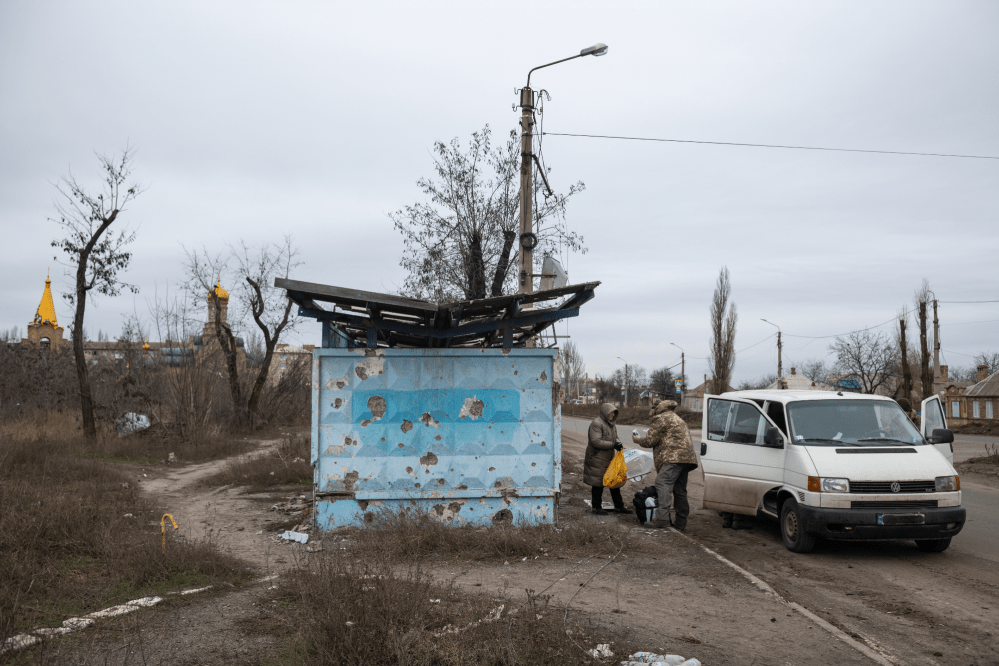 Joel Carillet
Joel CarilletWhen Povorozniuk and several other chaplains head into Bakhmut for a three-day visit, they go without a strict itinerary. They will visit the family of a local pastor who chose not to evacuate, bringing them supplies. They make a pastoral visit to a church member stationed in a nearby town. And they will help whoever they see on the road.
The back of their van is filled with food and other necessities, and when they pass a civilian, often an elderly person, they pull over and hand a bag of items through the window. When they pass a couple of soldiers struggling with a shredded tire, they stop to see if a spare tire in their own vehicle will work. When they pass a tank where crew are fixing a mechanical issue, they stop to offer greetings and a snack.
They will also minister at a stabilization point, where wounded soldiers are treated before being sent to hospitals further from the front. They bring food and supplies, and set up a coffee machine. When doctors or soldiers ask for prayer, they put a hand on their shoulders and pray. When a soldier is pronounced dead and, under a tree, is stripped of his winter gear and boots before being placed in a body bag, they stand over the body and help those present offer a few words up to God.
They will be back in their respective cities in time for church on Sunday. This is another reason for the speed. Imagine ministering at a church in Cincinnati and then driving to New York City to minister in a war zone and then getting back to Cincinnati by Sunday morning.
In that car full of evangelical chaplains, I thought we would slow down when we got clear of the front, away from the danger. We never did. They never do.
 Joel Carillet
Joel Carillet Joel Carillet
Joel CarilletZhenia Yevheniy Bondarenko has been volunteering as a chaplain since 2014, when armed conflict began as Russian-backed separatist seized territory in eastern Ukraine. In those early days, he was simply a church pastor bringing food and prayer to military personnel at checkpoints and lonely outposts located not that far from his hometown. Almost a decade later, some of the junior officers he had ministered to are now senior men in the military, and their relationship continues. He also carries in his heart the many who are no longer here.
Driving through the countryside between Mykolaiv and Kherson, Bondarenko talks about ministering to soldiers in war—the terrifying thunder of bombardment and what it is like to be with soldiers in such violent, fragile circumstances.
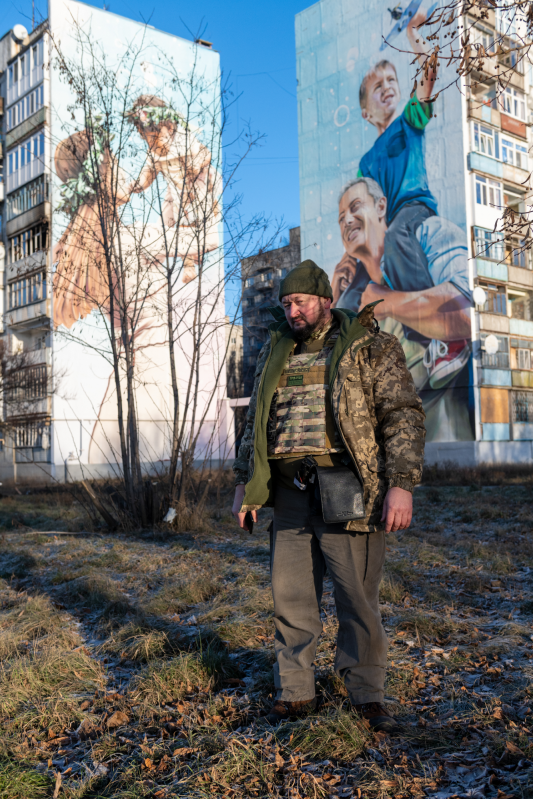 Joel Carillet
Joel Carillet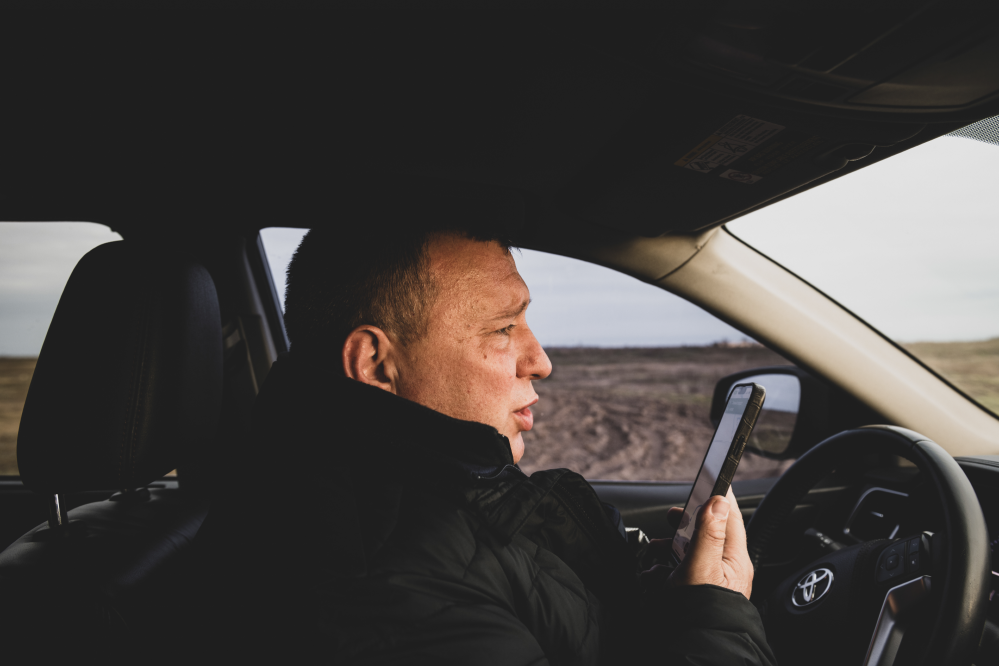 Joel Carillet
Joel CarilletBondarenko has developed relationships with many civilians in these heavily damaged villages. He stops with a team at one house to put a temporary cover on a destroyed roof. He stops at another to deliver groceries. At a third, he checks to see why a woman he met and helped months ago is not replying to his messages.
The woman’s only son, a soldier, was killed last year, and she moved to this region to be near his grave. He fears that something has happened to her too. He finds the house, parks the car, knocks on the gate, and an elderly couple open it. They tell him that she was killed in an accident.
In so many ways, chaplains bear witness to tragedy. They carry it with them as they speed to the next person to pray with.
“The motto of chaplains is ‘Being there,’ God’s presence,” one of the first official chaplains in Ukraine told the Associated Press. “This is the mission of the chaplain.”
Joel Carillet is a freelance photographer based in Florida.
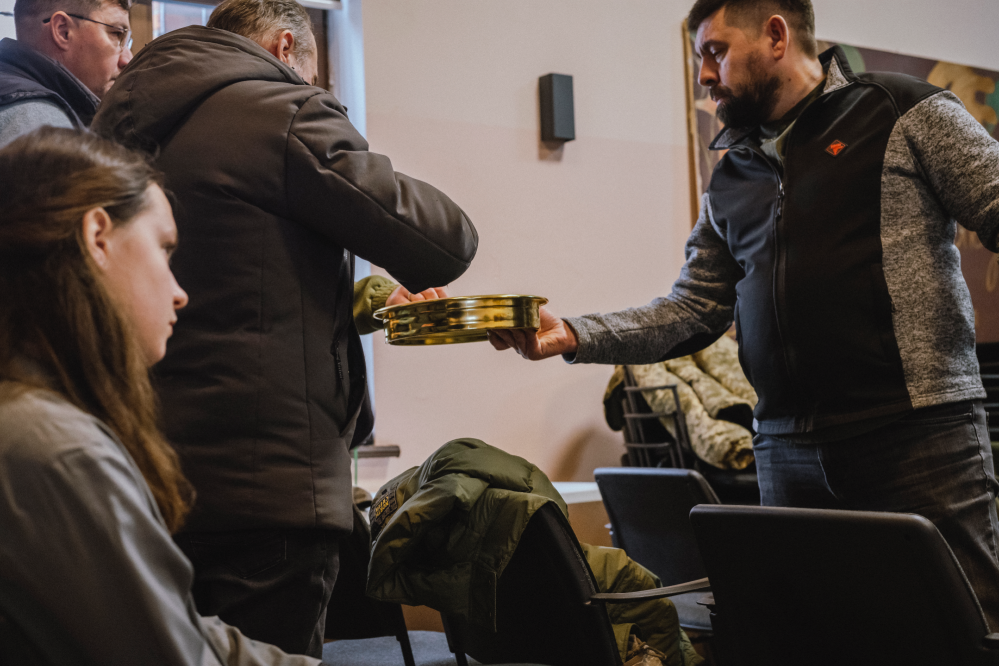 Joel Carillet
Joel Carillet
